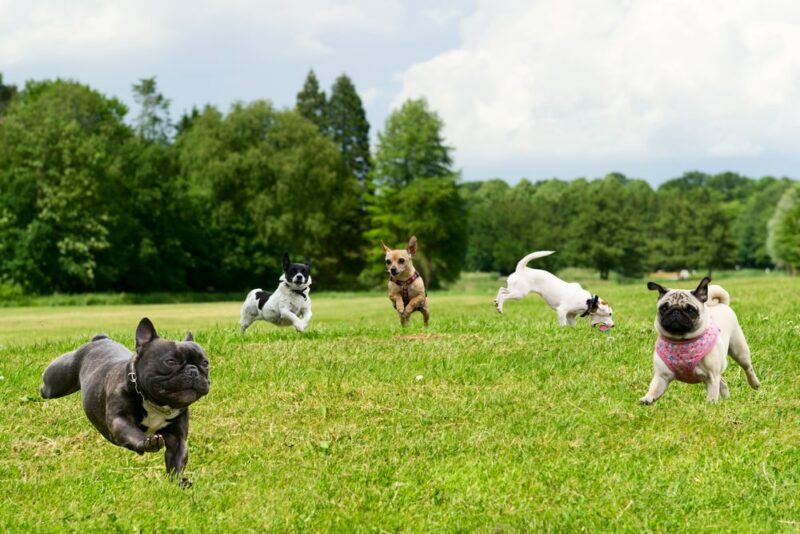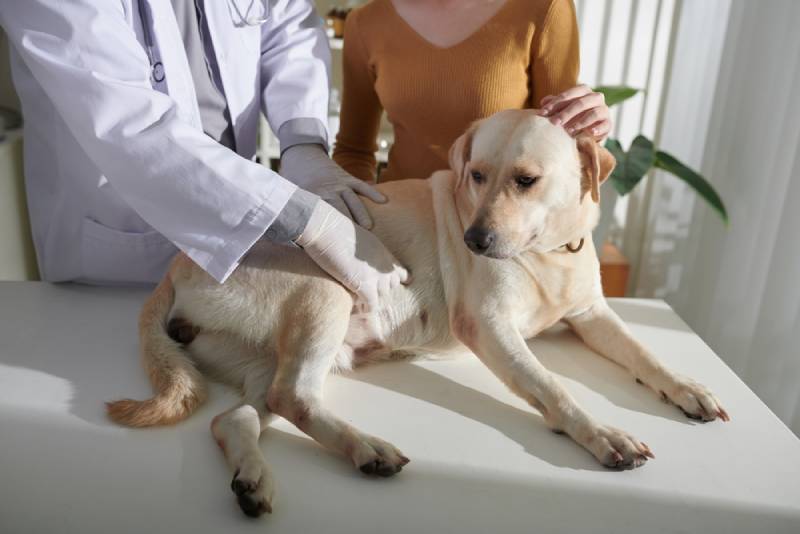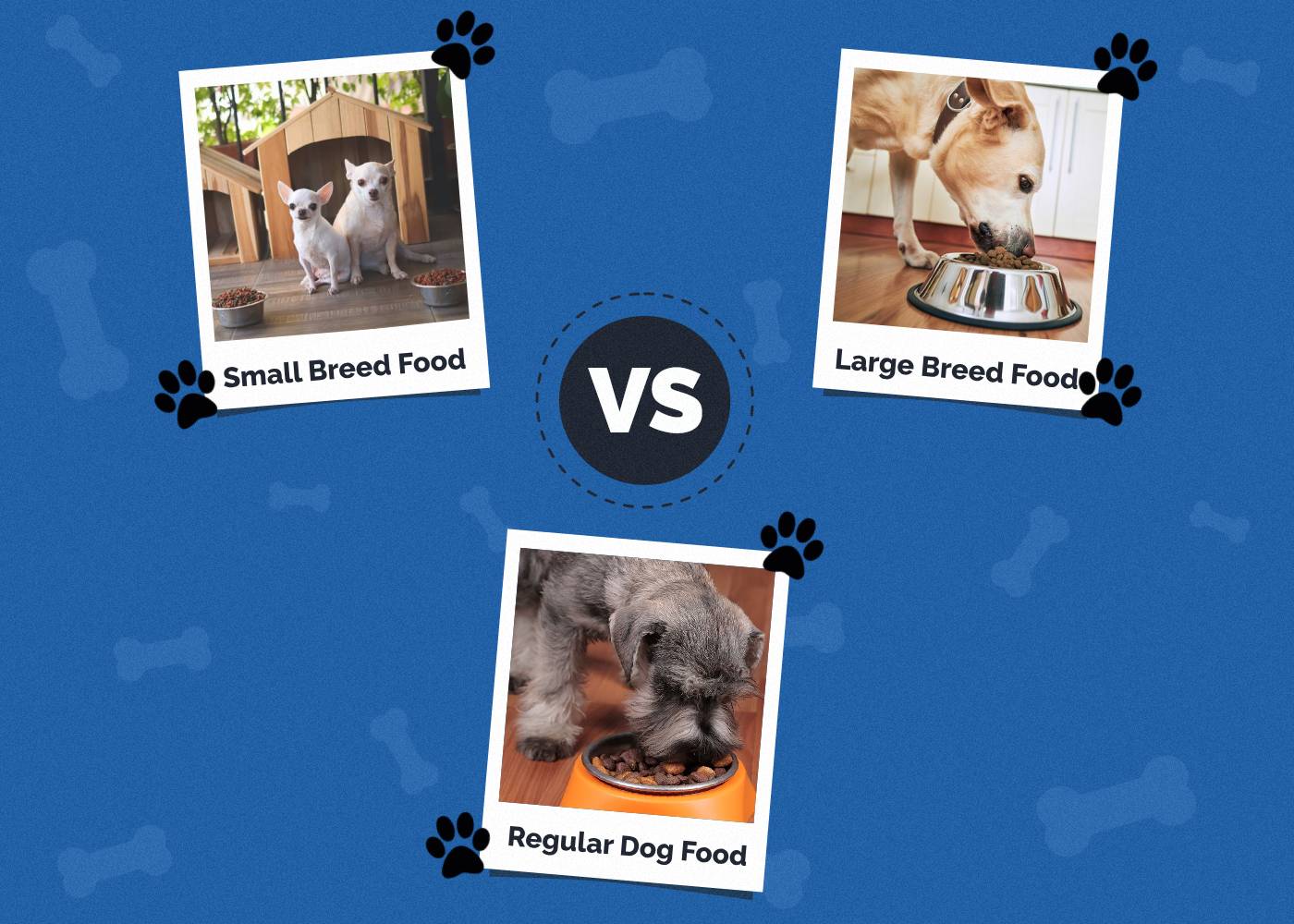Does My Dog Miss My Ex? (Answered)
Updated on

Click to Skip Ahead
There’s a reason that songs like “Breaking Up Is Hard to Do” exist. Breakups cause a great deal of stress and heartache, and the more intertwined your life is with your ex, the more difficult the process can be.
Then there’s your dog. Not all dogs will be affected by an ex no longer being part of their owners’ lives, especially if one disliked the other or the feeling was mutual. Still, if the dog is yours, they have become accustomed to your ex’s frequent visits, or if you and your ex got the dog together, you may only need to look at your pup to know that they are indeed missing your ex.
Here, we discuss the ways that you can help your dog adjust to these new circumstances and provide tips on sharing your pet if it’s in the cards.
How Your Dog Might Be Feeling
Your dog still has you, which is fantastic! But if your dog had a good relationship with your ex, they will miss them. Your dog is also likely quite confused. After all, you know that your ex is not coming back, but your dog doesn’t know this.
The following scenarios might be a few of the ways that your dog is thinking and feeling about your ex and the situation in general.
Where Is the Other Human?
This is especially true if your ex was living with you, and it will also mean the breakup will be that much harder on your dog. Dogs can have abandonment issues, and they definitely can suffer from depression. Therefore, it’s quite possible that your dog will exhibit signs of depression after the breakup.
Dogs have finely tuned senses, with the sense of smell being among the strongest, and when they no longer smell your ex, this will likely make your dog miss them more.
- Being inactive and withdrawn
- Changing eating and sleeping patterns
- No longer enjoying doing things that they used to enjoy
You should take your dog to see your veterinarian in case this is a health issue, and your vet can also give you advice on helping your dog through this transition.
Why Is My Human Acting Weird?
Your dog will likely pick up on your behavioral cues. For example, you might act differently because you’re depressed. You might not be playing with your dog as much as you would normally. You may not be laughing or interacting as much as usual.
Dogs are sensitive and perceptive and will quickly pick up on your mood, which can affect their mood too.

Why Is Everything Different?
Beyond how you’re feeling and acting and the ex being missing, there can also be physical differences.
If you and your dog are still living in the same home after the split, there will be other changes. Your ex’s belongings may disappear, including furniture. Dogs are creatures of habit and need a stable environment, so when things that they are familiar with are gone, they will notice.
Of course, if you and your dog have to move, everything will feel turned upside down.
If the Breakup Is Still Happening
If you’re in the middle of the breakup and everything is about to change, there are a few steps that you can take to make this time less stressful for your dog. It may make things easier for you too.
Don’t Argue Around Your Dog
This can be a challenge because emotions can run high during a breakup. But your dog will quickly pick up that everyone is angry and stressed out, and this will also make them anxious and stressed.
As difficult as it might be, you should try to keep everything calm in the home and keep the arguing away from your dog as best as you can.
Maintain a Routine
It will be a big challenge, but the routines that you have with your dog should be maintained as best as you can.
Take time to play with your dog, spend time with them, and take them for their regular walks. Try to keep the home as calm and as close to normal as possible.

Limit the Stress of Moving
If you’re the one who is taking your dog and moving, you need to keep the stress to a minimum. First, don’t move your dog to the new place until as close to the end of the move as possible. This means not staying in hotels or with family or friends for a few nights. All the changes will inevitably happen, but too many occurring over a short period of time will make the final move all the harder for your dog.
That said, the packing will also stress your dog, so if you have a friend or family member whom your dog loves spending time with, you can consider having your dog stay with them while you take care of the move.
You should also take your dog to the new place in advance of the move (if you’re not moving too far). Introduce them to the neighborhood and take them for walks in the area. Bring toys and treats and make the entire experience fun. This way, your dog will build a positive association with the new location.
Tips for Helping Your Dog After the Breakup
Once the breakup is finalized and you or your ex has moved, there are tips that should help your dog from missing your ex too much.
Make Things Feel Familiar
No matter what, if you’re moving with your dog into a new place, it will take time for both of you to adjust. Ensure that you have your dog’s familiar and favorite things, which should still smell like your old place.
Ask your ex for a piece of clothing that they don’t need, which will add their scent to your new place, which might add comfort for your dog.
If you’re not the one moving, keeping an item of your ex around might also help your pup.
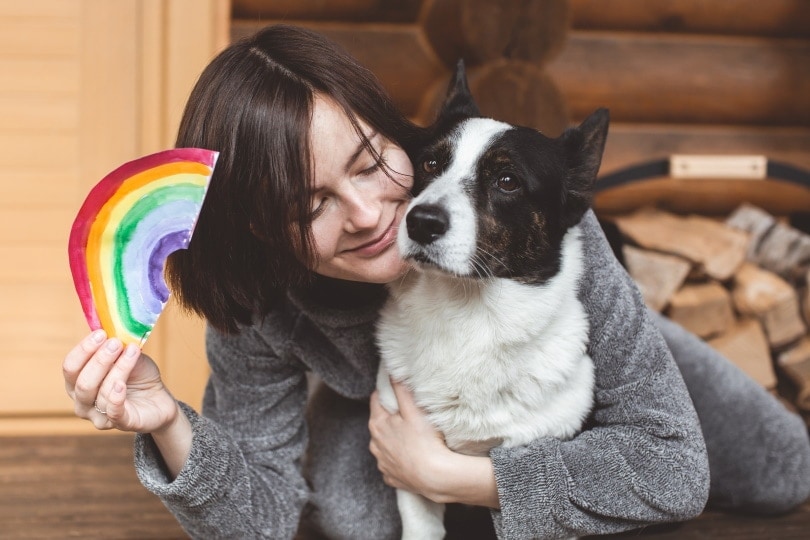
Maintain the Routine
Keeping to a routine is even more critical now than it was during the breakup. Stay with the same walking routines and feed your dog at the same times.
Remember to take time away from your busy schedule for quality time with your dog. Play with them and just be with them, which will go a long way toward making them feel stable and loved.
Look Out for Separation Anxiety
Dogs that have had a significant change in their world, like a breakup and a move, can easily develop separation anxiety.
- Excessive barking, whining, and howling
- Scratching doors and windows, digging holes, and chewing things
- Housebroken dogs having accidents indoors
- Obsessive pacing
- Salivating, drooling, and panting more than usual
- Attempting to escape
These signs will only occur when you’re gone. You should speak to your vet, and if it’s not getting better, you might need to give anti-anxiety medication to your dog or get an animal behaviorist involved.
Sharing Your Dog
This depends on a few factors, such as how amicable your split was and the temperament of your dog. Joint custody of your dog can sometimes be more for the humans than the dog.
If your dog is adaptable and seems to be generally relaxed about things, joint custody should be acceptable. But if your dog is more high-strung and prefers a strict routine, it will be in their best interests to only stay with one of you.
- They can walk your dog.
- Your ex can dog sit when you need it.
- Schedule playdates for your ex and dog when you’re not around.
- Suggest that your ex purchase toys and treats for your dog.
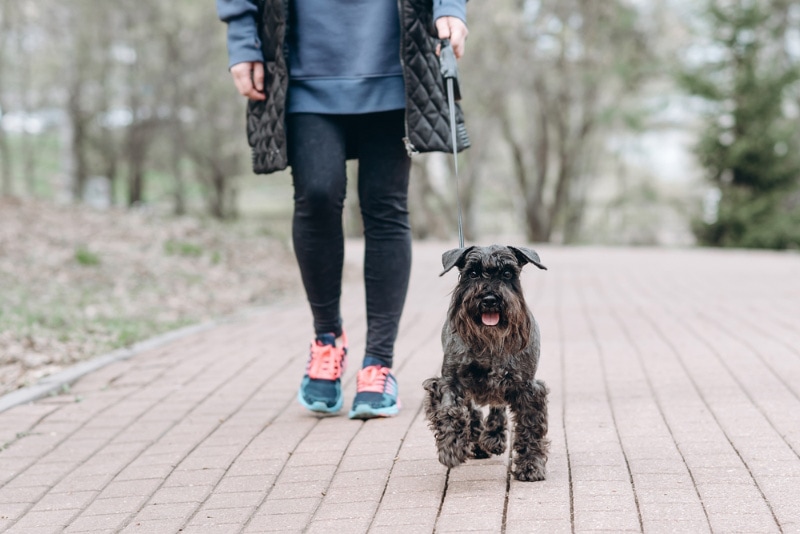
Conclusion
Breakups are difficult for everyone, but pets don’t understand what exactly is going on, so they can be just as devastated. When we are going through such tremendous emotional turmoil, it can be easy to overlook our dogs, which is perfectly understandable.
Just be sure to keep things calm and routines as intact as you can. Your overall goal is to have both you and your dog come out the other end of the breakup as unscathed as possible.
- See also: Do Dogs Miss Their Siblings? (Answered)
Featured Image Credit: Rebecca Scholz, Pixabay

